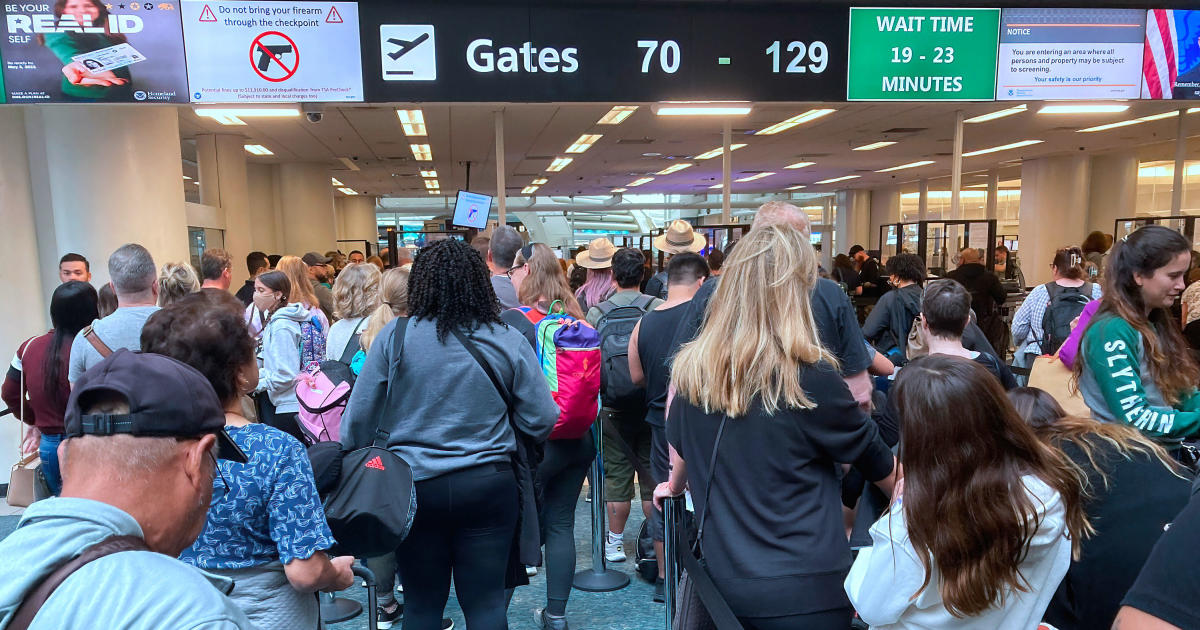Recent months have seen a rise in flight delays and cancellations, leading to a federal investigation into the cause and the prediction that these issues could persist for up to a decade, according to a CBS News investigation. Transportation Secretary Pete Buttigieg has announced that his office is actively investigating several airlines for what is being described as “unrealistic scheduling.” Unrealistic scheduling refers to practices where airlines overstate their ability to service the tickets they sell, which ultimately results in flight disruptions such as delays and cancellations. The aviation industry is currently facing a shortage of approximately 32,000 commercial pilots, mechanics, and air traffic controllers. This gap continues to grow each year, as indicated by data collected from the FAA, U.S. Department of Transportation, and U.S. Department of Labor. Buttigieg acknowledges that the staffing shortages are contributing to the recent surge in flight cancellations and delays that have affected millions of American travelers. When asked if his office should hold airlines responsible and prevent them from scheduling flights when they lack sufficient staff, Buttigieg responded firmly, emphasizing that there will be consequences for airlines that knowingly operate with unrealistic schedules. He adds that active investigations are underway, and airlines will be held responsible for any disruptions caused by their inability to fulfill tickets sold to paying customers. Buttigieg cites the delays experienced by American airlines in summer 2022 as a result of inadequate staffing, highlighting the fact that resolving this issue will take time due to its prolonged development. An analysis conducted by CBS News using data provided by FlightAware reveals that the number of delays caused by factors within airlines’ control has increased from 5.2% in 2018 to 7.6% in 2023, resulting in thousands of delayed flights. Although airlines often attribute delays to weather conditions, the shortage of staff exacerbates these issues. For instance, during a four-day period in June 2023, 31,850 flights were delayed, accounting for a third of all flights nationwide. Additionally, 6,346 flights were canceled during that time, equivalent to one in every 17 scheduled flights. When compared to the same period in 2019, the number of delays increased by 25%, while cancellations rose by 374%. While CBS News confirmed that Southwest Airlines is under investigation, details regarding other airlines involved remain confidential, as does the timeline for the investigation. CBS News reached out to Southwest Airlines for comment, but no response has been received at this time. The Department of Transportation has faced growing pressure to address flight delays and cancellations as the country recovers from the pandemic. In late 2022, Southwest Airlines canceled a significant number of flights due to a winter storm, subsequently issuing an apology for the disruptions. A bipartisan group of 34 state attorneys general expressed frustration over ongoing flight disruptions and urged the Department of Transportation to enforce stricter regulations, including requiring airlines to advertise and sell only flights they can adequately support and conducting regular audits to ensure compliance. U.S. Senators Edward Markey and Richard Blumenthal also wrote letters to airline CEOs, holding the airlines accountable for disruptions and suggesting that crew shortage should not result in last-minute cancellations. Kathleen Bangs, spokeswoman for FlightAware and a former commercial pilot, explains that predicting the impact of pending weather conditions on flight schedules and reducing them accordingly can be challenging for airlines. The Airlines for America association, representing major carriers, declined to comment on flight disruptions and staffing shortages but stated that airlines are actively hiring and implementing programs to address these issues. Dean Headley, an emeritus associate professor at Wichita State University, notes that the staffing shortage is currently affecting airlines, leading to grounded planes and reduced flight schedules to smaller regional airports. According to the Regional Airline Association, airlines have already abandoned 73 markets since 2019, resulting in the loss of air service at 321 airports. Smaller airports and cities should anticipate further route reductions as airlines struggle to meet the demand. Experts warn that the staffing issues in the industry may worsen and persist for another decade, with some predictions suggesting that the pilot shortage will not be resolved until 2032. The worker shortage in the industry has been a long-standing issue, exacerbated by the COVID-19 pandemic’s impact on airline routes and workforce reductions.
Denial of responsibility! VigourTimes is an automatic aggregator of Global media. In each content, the hyperlink to the primary source is specified. All trademarks belong to their rightful owners, and all materials to their authors. For any complaint, please reach us at – [email protected]. We will take necessary action within 24 hours.


